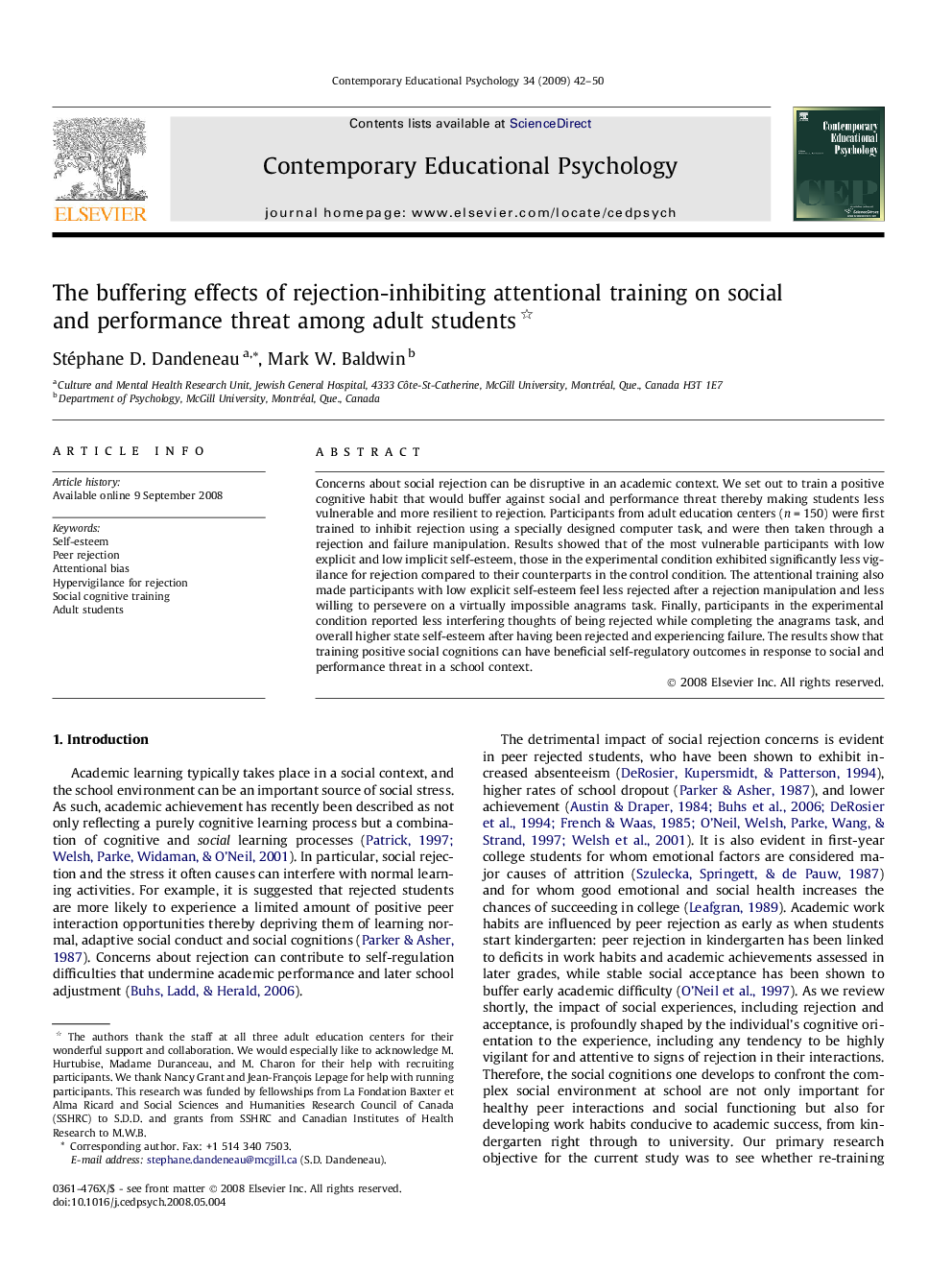| Article ID | Journal | Published Year | Pages | File Type |
|---|---|---|---|---|
| 352843 | Contemporary Educational Psychology | 2009 | 9 Pages |
Concerns about social rejection can be disruptive in an academic context. We set out to train a positive cognitive habit that would buffer against social and performance threat thereby making students less vulnerable and more resilient to rejection. Participants from adult education centers (n = 150) were first trained to inhibit rejection using a specially designed computer task, and were then taken through a rejection and failure manipulation. Results showed that of the most vulnerable participants with low explicit and low implicit self-esteem, those in the experimental condition exhibited significantly less vigilance for rejection compared to their counterparts in the control condition. The attentional training also made participants with low explicit self-esteem feel less rejected after a rejection manipulation and less willing to persevere on a virtually impossible anagrams task. Finally, participants in the experimental condition reported less interfering thoughts of being rejected while completing the anagrams task, and overall higher state self-esteem after having been rejected and experiencing failure. The results show that training positive social cognitions can have beneficial self-regulatory outcomes in response to social and performance threat in a school context.
